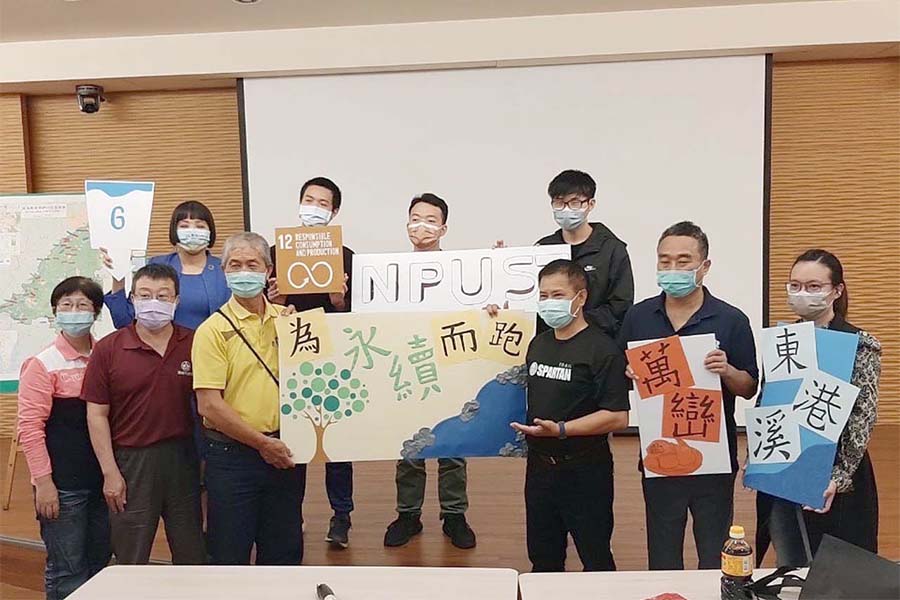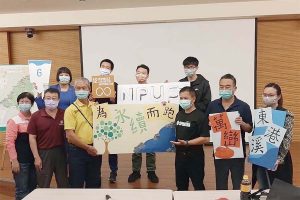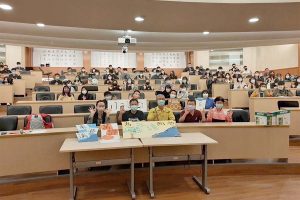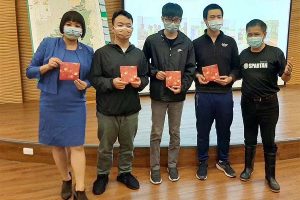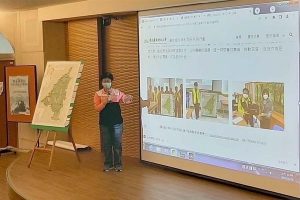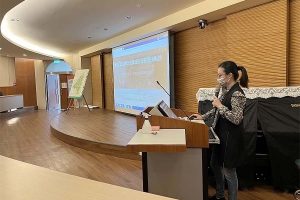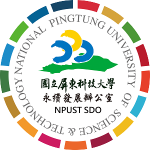Led by Associate Professor Jian Herlin from the General Education Center of NPUST, in collaboration with the Wuluan Township Office, the Taiwan Blue Donggang River Conservation Association, and other organizations, over 100 general education students from various departments of NPUST responded to the United Nations Decade on Ecosystem Restoration (2021-2030). On March 24, they launched the “Wanluan Public-Private Collaboration Starting from the River” series of actions as part of the university’s User-Social Responsibility (USR) project. The opening ceremony had the honor of inviting Wuluan Township Mayor Lin Guo-Shun to personally introduce the background and experiences of the collaboration with NPUST. Mayor Lin presented commemorative gifts from Wuluan Township to all students participating in the event. Secretary-General Liu Shi-Ying of the Donggang River Conservation Association shared the “Historical Context of Donggang River Restoration” and “Community Communication Skills” at the venue. Lin Yu-Jin, Chief of the Agricultural Section of Wanluan Township, provided detailed explanations and additional information on this year’s action groups.
In the past two years, the USR project team focused on the relationship between nature and people, specifically examining the “river ecosystem” near NPUST that has long been weakened by human social and economic activities. For instance, in the 110th year, the team executed the “Longneck Creek Turnaround Plan.” By inviting the Taiwan Blue Donggang River Association as consultants, the team led over a hundred students each year to assist in solving the challenging problem (wicked problem) of livestock wastewater pollution in rivers in ZhuTian Township. The goal is to improve the resource utilization rate of manure from livestock farms along the Longneck Creek and address the pollution problem in the second most severely polluted tributary of the Donggang River through practical actions. The event “Running for Sustainability” not only calls on stakeholders to respond to “river-related environments” and “sustainable education awareness” but also encourages the transformation of knowledge into action, promoting and assisting ZhuTian Township in redirecting relevant socio-economic development toward a sustainable transition path. It aims to create a model case for the restoration of Taiwan’s river ecosystems and organize a series of celebratory activities on the “World Rivers Day,” set by the United Nations every fourth Sunday in September.
For the first time this year, in collaboration with the Wanluan Township Office, the project will dispatch several field investigators from the township to lead students in various groups from NPUST. This collaboration is supplemented by “professional empowerment courses” and enhanced reflections on the United Nations Sustainable Development Goals (SDGs) “SDG 6 Clean Water Resources” and “SDG 12 Responsible Production and Consumption.” Students will focus on the roster of households around livestock farms investigated by the township office, conduct purposeful matchmaking of biogas slurry and residues, and integrate resources from livestock farms in Wanluan and the surrounding households. While achieving the goal of river ecosystem restoration, it will also facilitate a win-win outcome of “public sector,” “business,” “farmers,” and “community circular economic development.” In the process of participating in the university’s social responsibility project execution, students can learn “agricultural and livestock-related expertise,” “community communication skills,” “planning skills,” “execution skills,” and continuously enhance their abilities. Moreover, they contribute to society and the environment, becoming a seed force for sustainable transformation in the next generation.




